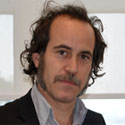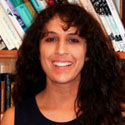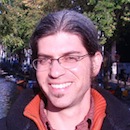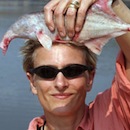Advisory Board and Editors Evolutionary Studies

Carlos A Santamaria
Santamaria’s primary research interests are on cryptic biodiversity and phylogeography of coastal invertebrates, particularly those from highly biodiverse and geologically active regions such as Hawai’i, southern Africa, Pacific Islands, the Greater Caribbean Region, the Mediterranean and the Baja Peninsula of Mexico.
As a Hispanic, he is aware of the difficulties that under-represented students face in higher education and when pursuing careers in the biological sciences. Thus, he is dedicated to increasing their participation in the sciences. He has mentored undergraduates who self-identify as members of underrepresented groups in his research activities. He also participates in community outreach events as well as professional development programs geared towards developing a better understanding of the needs of a multi-cultural student body and to improve the participation of under-represented groups in the sciences.

Richard A. Schneider
Professor, Department of Orthopaedic Surgery; Director, Laboratory for Developmental and Evolutionary Skeletal Biology. BA, Hampshire College; MSc and PhD, Duke University.

Erik R Seiffert
Erik Seiffert's research is focused on the phylogenetic relationships, adaptations, and historical biogeography of mammals, with an emphasis on the endemic placental mammals of Africa and Arabia. He has a B.A. from the University of California at Berkeley (1995), an M.A. from the University of Texas at Austin (1998), and a Ph.D. from Duke University (2003). He was previously Lecturer in Palaeobiology and Palaeoenvironments at University of Oxford and Curator of Geological Collections at the Oxford University Museum of Natural History (2004-2007), Assistant and Associate Professor of Anatomical Sciences at Stony Brook University (2007-2016), and is now a Professor of Integrative Anatomical Sciences at the Keck School of Medicine of the University of Southern California (2016-Present). He is also a Research Associate at the Duke Lemur Center's Division of Fossil Primates and in the Department of Mammalogy, Natural History Museum of Los Angeles County.

Maria R. Servedio
Associate Professor of Biology at the University of North Carolina, Chapel Hill. Council member for the Society for the Study of Evolution. Member of the Operations Committee for the National Evolutionary Synthesis Center (NESCent). Recipient of the Young Investigators Award from the American Society of Naturalists.

Joao C Setubal
João Setubal is full professor in the Biochemistry Department of the Institute of Chemistry at the University of São Paulo, Brazil. Setubal has a PhD in Computer Science (1992) from the University of Washington (USA). He was a faculty member at the University of Campinas (Unicamp, Brazil) (1992-2004), then Associate Professor at the Biocomplexity Institute of Virginia Tech, USA (formerly the Virginia Bioinformatics Institute) (2004-2011), where he still is an Adjunct Faculty. His research interests are in computational tools for genomics, metagenomics, and transcriptomics, and applications of such tools primarily in microbiology and microbial ecology.

Petra Sierwald
Associate Curator (Zoology/Insects), 2005-present, Field Museum of Natural History
Ph.D. (Dr. rer. nat.) in Zoology, University of Hamburg; 1985.
M.Sc. (Staatsexamen) in Biology, Geography and Biology-Education; University of Hamburg; 1982.
Chief Taxonomic Editor; MilliBase [http://millibase.org]
Research: Collections-based biodiversity research in Arachnida and Myriapoda, contributing to species discovery and higher level phylogenies, and to the analysis of complex and new morphological characters suites for phylogenetic research as well as to the development of taxonomic tools. Research strategies address the vastly different knowledge-base in Arachnida on one hand and Myriapoda on the other, with nearly all research in integrative and collaborative arrangements (e.g., millipede phylogenomics research). Curation of museum collections: Specimen and tissue collection building, improvement of collection accessibility through digitization and stewardship of digitized collection data.Analyses and research options employing digitized museum specimen data.

Michael S. Singer
Professor of Biology and Environmental Studies at Wesleyan University. Research focus on the role of tri-trophic interactions in evolutionary, community, and food web ecology. Additional specific expertise in plant-insect interactions and Lepidoptera.

Mar Sobral
Spanish Evolutionary Ecologist. Formerly at Stanford (US) and CNRS (France). Now at USC (Spain).
My research looks at the evolutionary ecology of plant-animal interactions and the impact of global change on biodiversity, particularly regarding ecosystem functions and services such as carbon storage.

Victoria Sosa
PhD from the University of California, Berkeley. Research interests include the phylogeny and evolution of plants with a particular focus on groups of vascular plants that are distributed in Mesoamerica and especially endemic to Mexico. Also interested in cloud forest flora. Systematics and taxonomy of orchids in Epidendreae are as well part of my interests. In addition, I am conducting investigation on diversity, evolutionary biology and ecology of geophytes an interesting life form in plants. Genomics and economic botany of underutilized fruits is one of my new lines of research.

Valeria Souza
Full professor at the Universidad Nacional Autónoma de México. Winner of several national conservation awards. Expert on microbial evolutionary ecology, works studying microbial mats and complex communities at Cuatro Ciénegas Coahuila, Mexico

Matt Sponheimer
Matt does research on the ecology of early hominins and associated fauna in Africa. He has also directed and co-directed several multidisciplinary projects on the ecology of living mammals, both large and small, in South Africa. He is the director of the Nutritional and Isotopic Ecology Lab (NIEL) at the University of Colorado at Boulder.

Melanie L.J. Stiassny
Axelrod Research Curator of Fishes, Division of Vertebrate Zoology, and Professor, Richard Gilder Graduate School at the American Museum of Natural History.

